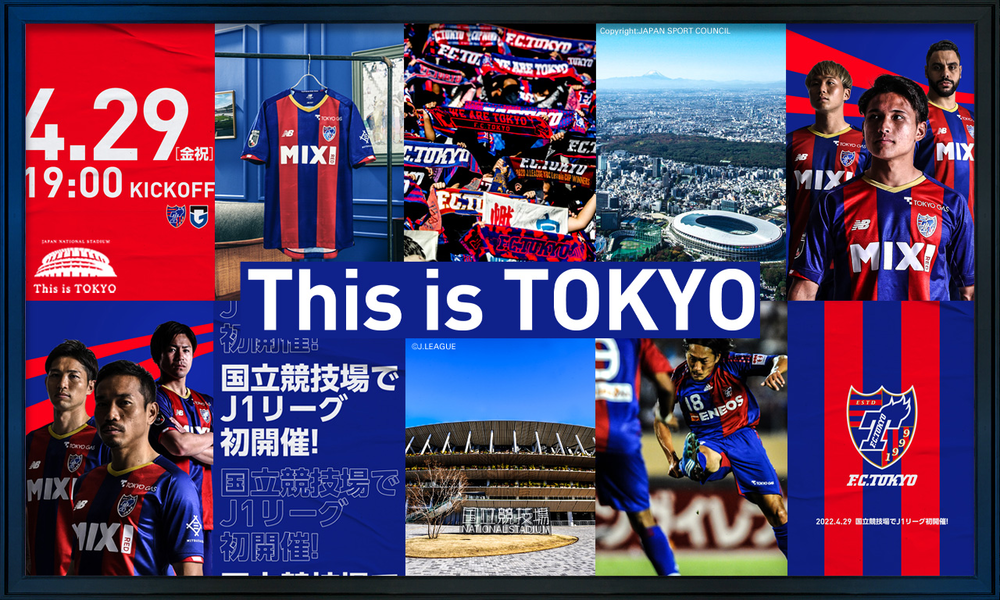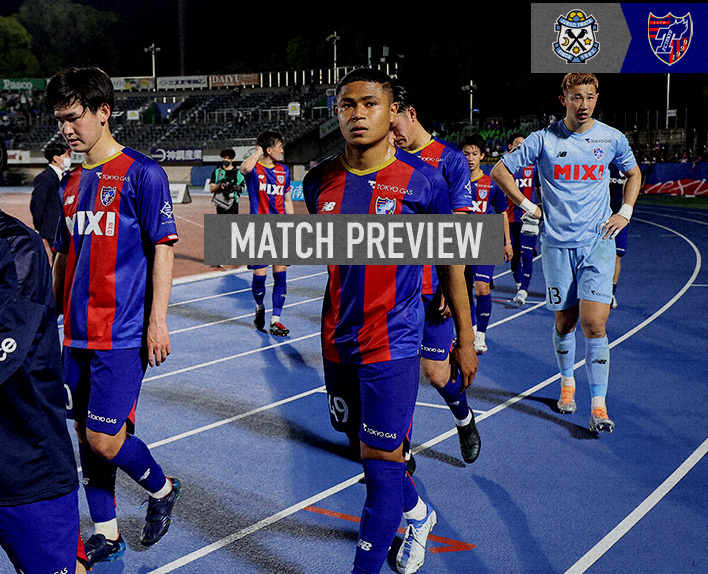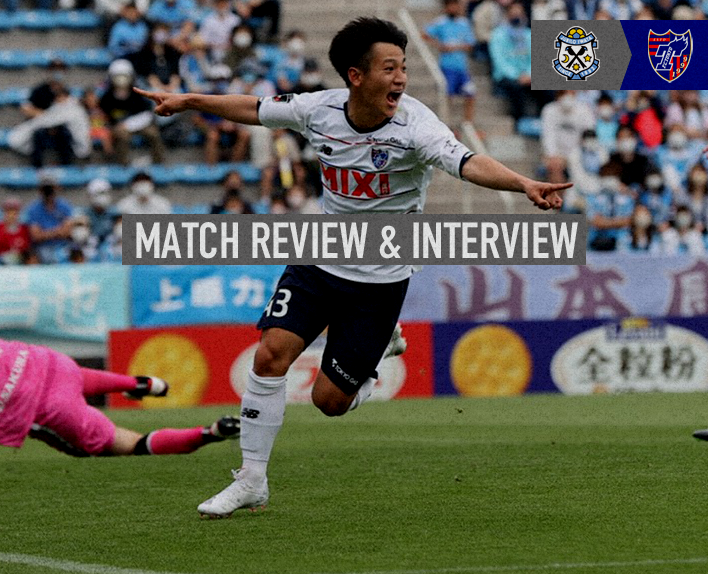[Interview with Coach Albert PUIG ORTONEDA]
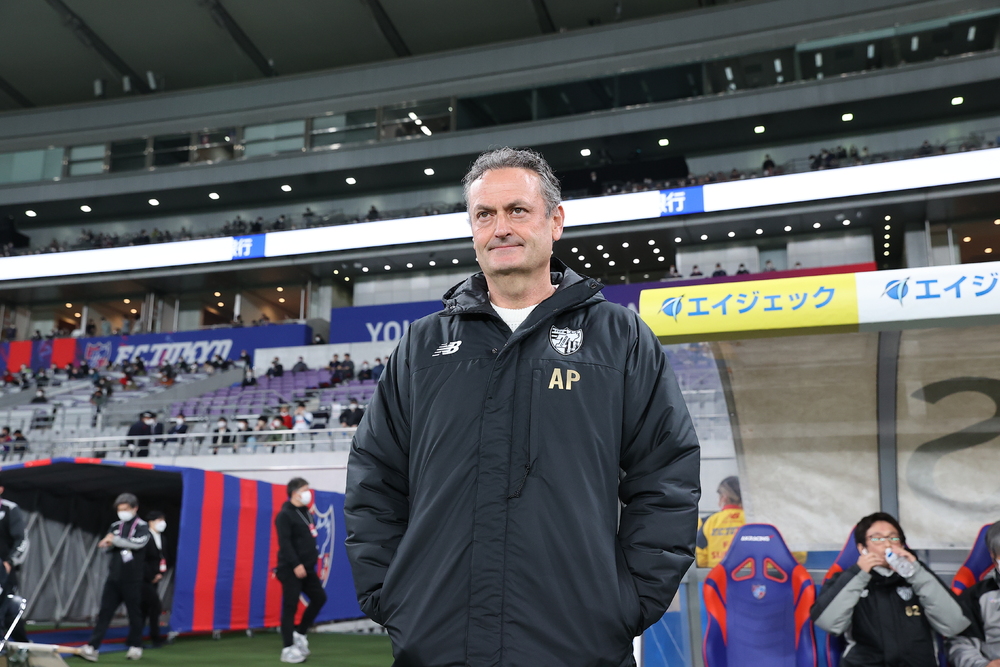
Q: Tomorrow's match will mark the 100th match of your coaching career in Japan. Does that mean that even a single official match is not just a game?
I have experienced 60 professional games as a head coach in New York, and tomorrow will be my 100th game as the manager of the top team. When asked if this is something special, I would say it is not. However, I believe it will be a very memorable match for me personally.
Q: I think players are required to kick the ball strongly and quickly while maintaining a certain distance from each other. It seems that the players are making an effort, what do you think?
If you analyze the match against Nagoya, I think you will see that we controlled the opponent for many periods of the game. I am utilizing the characteristics of each player in our strategy. Based on that, we are gradually changing the players' playing styles step by step. Aoki has been making a wonderful contribution. However, I wouldn't necessarily say he is a player who can do everything as a clear single defensive midfielder. The two center-backs are not players who have consistently built up play from the back; they have played with a different style until last season. The full-backs are players who have not been asked to receive the ball next to the defensive midfielders. I believe Kuba (SLOWIK) has also not frequently participated in attacks. We are seeking match results while utilizing the characteristics of such players and gradually advancing the team's reform.
Leandro's return will surely provide an added value to the team. The same goes for Kashif BANGNAGANDE's return. There are several players worth watching, including Renta HIGASHI. Ryoma Watanabe is also showing good growth. We are fostering the development of players who will carry the future of the team. However, balancing growth while achieving match results is not easy. There is a clear difference in play speed compared to three months ago. It is getting faster and faster. Gradually, good plays are emerging in positional games. Applying what we can do in practice to matches will be the next step. It is gradually becoming noticeable in matches, and naturally, both play speed and passing speed are increasing.
Q: Previously, you mentioned that a good pass sounds good. Is that one of the criteria for improvement?
A. The quality of a player's play is influenced much more before receiving the ball than after. Many players can look around and think after receiving the ball. However, the play we seek is much faster, so if you think after receiving the ball, the play speed will drop. To maintain a high play speed, you must recognize many things and make decisions before receiving the ball. If you can do this properly, it will create a situation where the opposing team has no way to defend. For example, in a 100m race, if you can start at any time rather than all at once, the one who starts earlier wins. There is a possibility of being overtaken in the subsequent speed battle, but starting first means you are expected to win immediately after. In soccer, without a fixed start signal, the brain makes decisions and tactics, and if you win that, you hold the initiative; if you have the ball, winning is natural. By leveling up in this way, we must focus on winning and accumulate points.
Japan must improve more in that area. The speed of judgment and the mentality of being particular about competition are crucial. If an 18-year-old player like Renta HIGASHI were in Europe, he would be gaining experience in a much higher level of competitive world. The same can be said for South America. Under circumstances where many competitions are unavoidable, players gain a lot of experience both domestically and in international tournaments. Of course, I respect Japan, but how many high-level matches has Renta HIGASHI really played in the past year where he had to be particular about competition? Young players in South America and Europe have experienced dozens of matches. This creates a gap in growth.
Nagatomo is one of the few Japanese players who have continued to perform at a high level in Europe. I don't think Nagatomo's technical skills are particularly outstanding. So why has he been able to compete at the top level for such a long time? There are probably many players in Japan with higher technical skills than him. However, why can't those players continue to succeed in Europe, creating a gap? It is because Nagatomo has a strong mentality and a winner's mindset that focuses on competition.After the Belgium match at the Russia World Cup, many people commented that Japan is pure and polite, does not complain to referees, and even cleans the locker room before leaving. This is wonderful. In life, Japanese behavior is truly exemplary. However, having only such a pure mentality makes it difficult to achieve something at a high level. A competitive mentality is necessary. Improving both the speed of situational judgment and the competitive mentality is what Japanese football needs, isn't it?
Q: Are you looking forward to the young players tomorrow as well?
A. I want to continue giving opportunities to young players, and I want to provide playing time to those who need it to maintain their match sense. I especially want to give young players a chance to showcase their talents. I want to compete in the Levain Cup while maintaining a good balance in that regard.
Q: Please tell us your evaluation of player Takahagi's response to the interview.
He is truly wonderful, a veteran player who serves as a role model for young players, and he provides a sense of calm to them. This can be said in both mental and football aspects. Moreover, he possesses truly amazing technique. I wish I had met him when he was 20 years old. He is an outstanding player. Additionally, he is a fantastic professional. His behavior on and off the pitch is truly perfect.
[Player Interview]
<Yojiro TAKAHAGI>
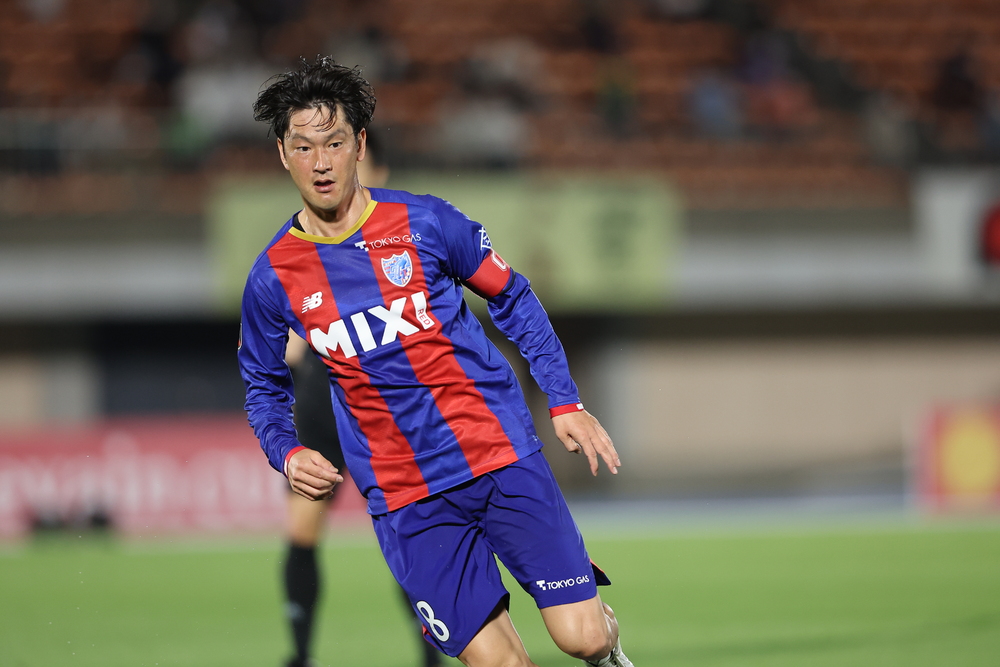
Q: I think this season you will often be used in an attacking position, close to forward. It seems like a position that requires speed, and I believe the coach's choice to use players who are skilled with their feet carries a message. How do you feel about that role?
I am more focused on contributing to the team with what I can do rather than my role. There are certainly aspects of tactics that we should execute as a team, such as taking appropriate positioning. Since it's difficult to increase my speed, I hope to showcase unique strengths through different plays that other players may not have.
Q: The team has been in a 0-0 match and we want to score. I believe (Takahagi) can utilize individual skills while effectively executing team tactics, but what aspects do you want to leverage to turn that into goals?
I think that while firmly holding the ball, we are required to not just possess it, but also to make decisive passes at some point. I want to play with the awareness of being able to make many of those during the match.
Q: Even if it goes as planned, it doesn't mean it will succeed, so you want to increase the number of chances, right?
A, I want to create many decisive scenes.
Q, I am also looking forward to the goals.
A, since I am in an attacking position, I want to play in a way that involves the goal as much as possible.
Q: It is expected that Iwata will use a five-back formation. How will you respond to that?
I think they will create a defensive block and defend. In the last match we played against them, they did not press from the front, so I want to position myself between the opponent and create a situation where they have to slide defensively, while also making movements to target the space behind the defensive line of a withdrawn opponent.
Q: If you don't have the awareness to move forward, the opponent won't break down, right?
A, that's right. I want to take a positioning that allows for solid vertical passes.
Q: Do you feel that you can adapt to this football if you bring out what you have done so far?
In terms of offense, I can get involved with my own play and I think I can add some variation. For defense, I believe intensity is required, so I think it would be good if I can play with that in mind.
Q: I think it is important in the soccer we are currently working on to intentionally create space. What is necessary for that?
A, as the coach says, in a style of football known as positional play, if we can take positions that make it difficult for the opponent based on our positioning, the opponent will have to slide and will not be able to come to take the ball. I want to achieve such positioning.
Q: What are the factors that contribute to the team being well-coordinated? Is it because we continue to work without rushing?
Yes, I think that is one possibility. However, I believe it is not easy to instill tactics. I think it would be good if we can continue to be patient.
Q: What are your thoughts and enthusiasm for tomorrow's match?
If we lose, we are out, so we just need to win. We play to win in order to advance to the next stage as a team. We will focus solely on giving 100% and think about what we can do for that purpose.
Q: Is it important to continue winning in order to create a place to showcase yourself as a player like Takahagi?
A, even if we play well, nothing will change if we don't win, so I want to win, achieve results, and break into the competition within the team.
